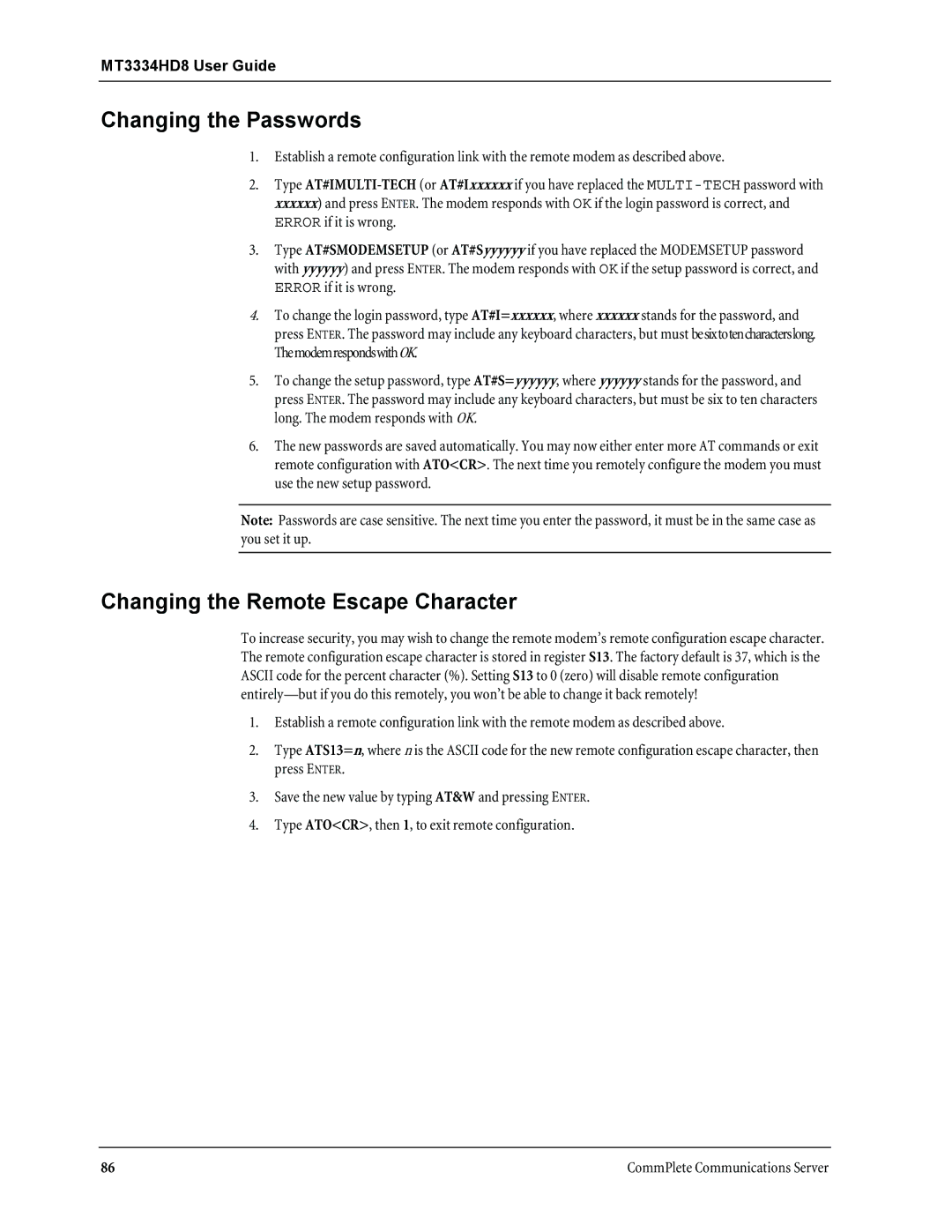
MT3334HD8 User Guide
Changing the Passwords
1.Establish a remote configuration link with the remote modem as described above.
2.Type
3.Type AT#SMODEMSETUP (or AT#Syyyyyy if you have replaced the MODEMSETUP password with yyyyyy) and press ENTER. The modem responds with OK if the setup password is correct, and ERROR if it is wrong.
4.To change the login password, type AT#I=xxxxxx, where xxxxxx stands for the password, and press ENTER. The password may include any keyboard characters, but must besixtotencharacterslong. ThemodemrespondswithOK.
5.To change the setup password, type AT#S=yyyyyy, where yyyyyy stands for the password, and press ENTER. The password may include any keyboard characters, but must be six to ten characters long. The modem responds with OK.
6.The new passwords are saved automatically. You may now either enter more AT commands or exit remote configuration with ATO<CR>. The next time you remotely configure the modem you must use the new setup password.
Note: Passwords are case sensitive. The next time you enter the password, it must be in the same case as you set it up.
Changing the Remote Escape Character
To increase security, you may wish to change the remote modem’s remote configuration escape character. The remote configuration escape character is stored in register S13. The factory default is 37, which is the ASCII code for the percent character (%). Setting S13 to 0 (zero) will disable remote configuration
1.Establish a remote configuration link with the remote modem as described above.
2.Type ATS13=n, where n is the ASCII code for the new remote configuration escape character, then press ENTER.
3.Save the new value by typing AT&W and pressing ENTER.
4.Type ATO<CR>, then 1, to exit remote configuration.
86 | CommPlete Communications Server |
